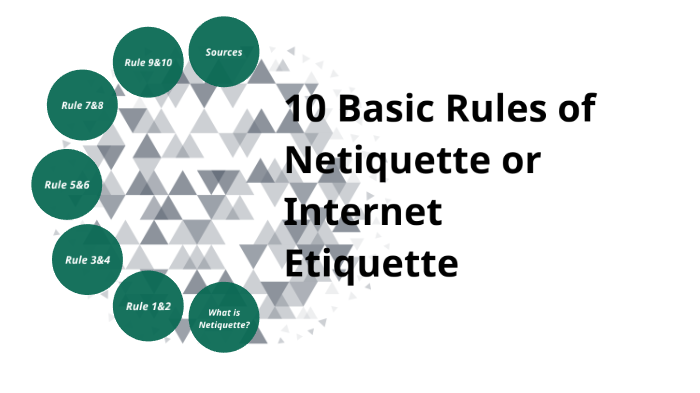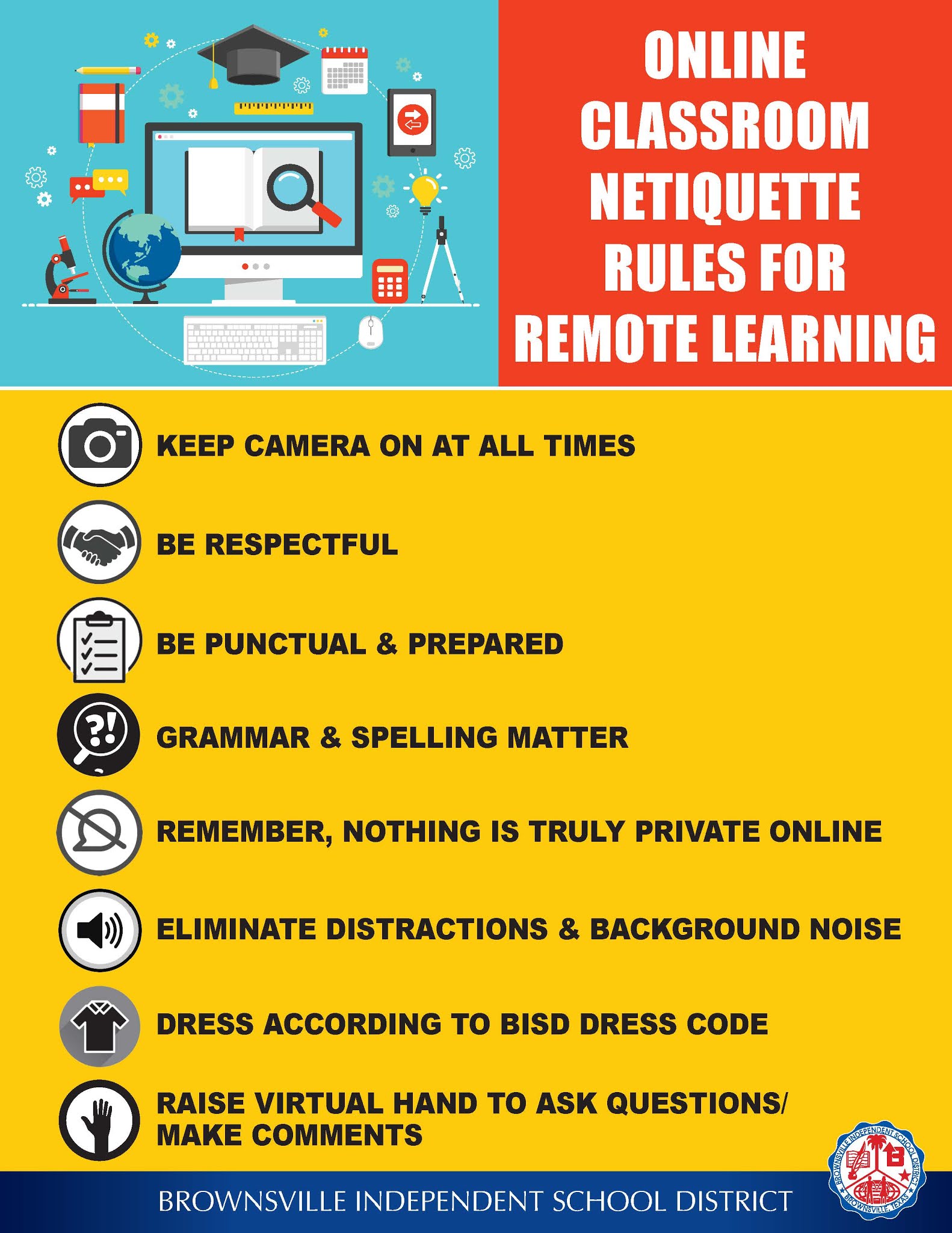

Following this netiquette guideline when communicating with your superiors and new individuals can lead to good first impressions.


This is important to understand because it can reflect poorly on your employer as well. Repeatedly making the same mistakes may cause you to appear uncreditable, unintelligent, and in some cases disrespectful.
BEST RULES OF NETIQUETTE PROFESSIONAL
Not only can poor mechanical and grammatical errors cause confusion and frustration for the reader, it can also harm your professional reputation.

Doing this can also benefit your professional reputation because it shows that you are attentive and not reactive.Īlthough mistakes are inevitable, it is important to be aware of your spelling, capitalization, punctuation, and grammar. Before sharing your opinion about an article or updating your followers about something personal, read and/or think before responding or posting. This guideline also applies to social media. Therefore, it is important to abstain from skimming over material and quickly responding without much thought. You have now risked your professional reputation and relationship with that individual. Imagine that the sender’s tone was not hostile at all and you just misunderstood their tone. Let’s say, you skim over an email and felt the sender’s tone was hostile, you then you quickly respond with an equally hostile email. This netiquette guideline is one of the most important to follow because it can prevent unintended repercussions, such as misunderstandings, arguments, and negative views from outsiders. With that said, here are some netiquette guidelines you should consider when communicating online. This can lead people to lose their jobs and relationships. We share everything we are comfortable with, and we are comfortable with everything, and sometimes it is incredibly inappropriate. We lose all our inhibitions about sharing extremely private information. There is this phenomenon and communication we call disinhibition. This is because when people are face-to-face, there are things that they don’t share. When you first go on social media, you quickly learn things that you never knew and never would have known about people. Krahenbuhl, Communication Studies Program Coordinator, reiterates this by stating: The importance of netiquette cannot be overemphasized because your online identity has the potential to benefit or damage your professional career, employer, and personal life. Practicing good netiquette is important for everyone, especially working professionals, because any interaction you have online is there forever. What is netiquette? Netiquette is etiquette for online socialization. So, is there etiquette for online communication? Yes, but it is ever evolving. Especially now, as we face the current COVID-19 pandemic, it has become necessary for us to adapt to online communication.Īs this progression to online communication takes place, the widely accepted etiquette for in-person interaction cannot be applied to online spaces. Whether we are shopping online, writing a report, or commenting on a Facebook post, there is no denying that we spend a massive amount of our time communicating online. These specific rules apply to in-person social situations, but what about non-face-to-face interactions, like in online spaces? This is where netiquette guidelines come in.Īccording to DataReportal’s Digital 2020 report, the average internet user spends 6 hours and 43 minutes online a day, equating to 100 days per year. Common rules include saying please and thank you, not talking with your mouth full, not inquiring about personal matters (unless you know the person) and keeping eye contact when conversing. You may be following “good etiquette” and not even realize it. These guidelines for “good etiquette” can differ depending on cultural expectations, as well as where the exchange takes place, and with whom. Etiquette – what exactly is it? Etiquette is a set of unwritten rules that guide people in certain social situations.


 0 kommentar(er)
0 kommentar(er)
